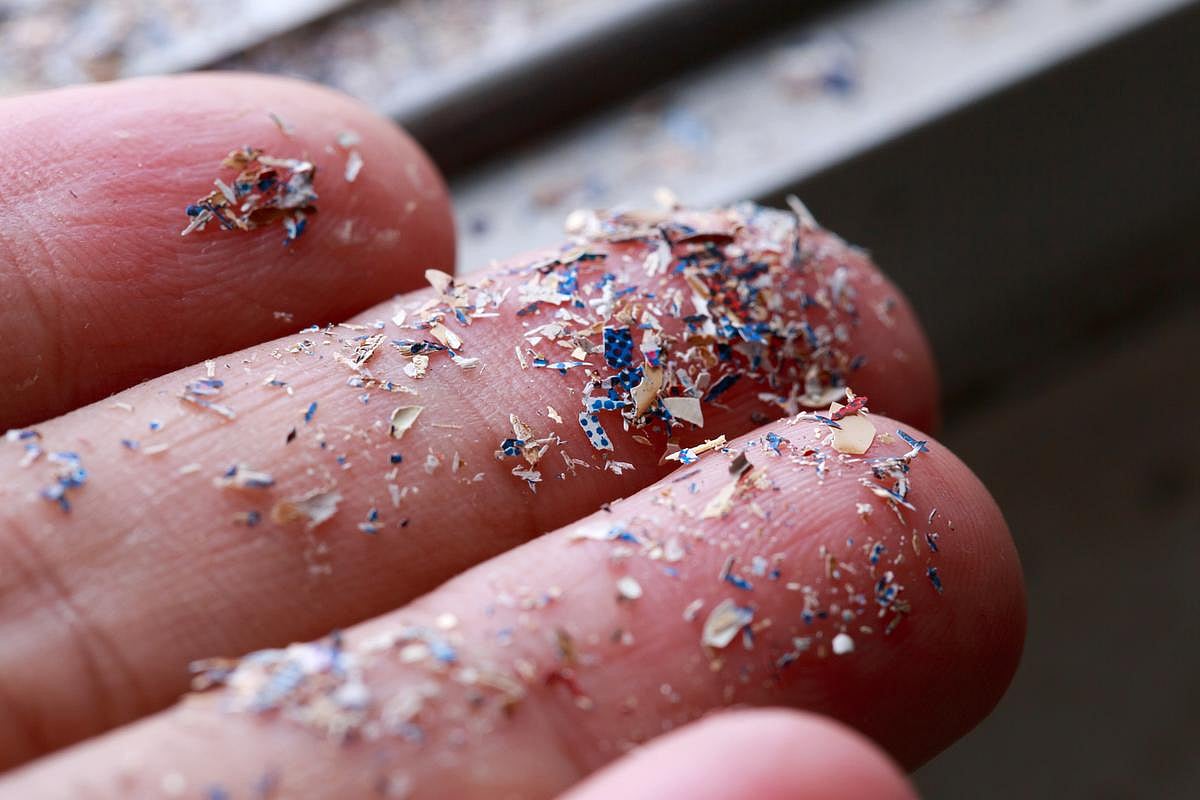Get Healthy!

- Dennis Thompson
- Posted April 23, 2025
Microplastics Could Be Contributing To Clogged Arteries
Microplastics could be contributing to clogged arteries, increasing people’s risk of heart attack or stroke, a new study says.
Fatty plaques in neck arteries can contain more than 50 times as much microplastics as are found in arteries free of plaques, researchers reported Tuesday at a meeting of the American Heart Association in Baltimore.
These levels of plaque-bound plastic particles were even higher in patients who already had experienced a stroke, mini-stroke or temporary loss of vision due to clogged blood vessels, researchers reported.
“These types of plastics are commonly found in the environment, especially in ocean garbage patches. Over many years, these plastics break down, mix into the soil and water, and can build up in the food chain,” lead researcher Dr. Ross Clark, a vascular surgeon-scientist at the University of New Mexico in Albuquerque, said in a news release.
“Many people think that micro and nanoplastics mainly come from using plastic utensils, cutting boards, packaging, water bottles and other plastic items,” he continued. “However, the main source is the food and water we eat and drink.”
Nanoplastics are plastic particles less than 1,000 nanometers across, invisible to the human eye. By comparison, a human hair is 50,000 to 80,000 nanometers wide.
For this study, researchers built on a 2024 Italian study that found nanoplastics in arterial plaques removed during surgery. People with nanoplastic-loaded plaques were more likely to die or have a heart attack or stroke, that study found.
The new research involved tissue samples removed from the carotid arteries of 48 patients.
About a third of the samples were from people aged 60 to 90 who’d had plaques removed to treat a stroke or stroke-like condition, and another third from people who had plaques removed to prevent potential health problems.
The remaining third of the samples came from tissue donors who did not suffer from clogged carotid arteries.
Researchers found that nanoplastic particles in carotid arteries were:
16 times higher in plaques among people with clogged arteries but no health problems.
51 times higher in plaques from people who’d experienced a stroke or mini-stroke due to clogged arteries.
The team also found that the amount of nanoplastics in a person’s arteries did not appear to be causing any sudden inflammation.
However, nanoplastic levels were linked to changes in genetic activity among cells that help stabilize plaques and control inflammation.
“These findings indicate that the biological effects of micronanoplastics on fatty deposits are more complex and nuanced than simply causing sudden inflammation,” Clark said.
Researchers next plan to look into how these particles affect the immune system.
“It's very important to study what these materials do to our bodies. However, we should be cautious about the early results of this study. We won’t fully understand the biological effects for many years to come,” Clark said.
Dr. Karen Furie, a spokeswoman for the American Heart Association who was not involved in the study, called these results “very interesting and troubling.”
“To date, we have not considered exposure to plastic micronanoparticles a modifiable risk factor for stroke,” Furie, chair of neurology at Brown University's Warren Alpert Medical School in Providence, R.I., said in a news release.
“Although it is important to understand the mechanism at play in the pathophysiology of symptomatic carotid atherosclerosis, this association presents a novel potential target for stroke prevention,” she added.
Findings presented at medical meetings should be considered preliminary until published in a peer-reviewed journal.
More information
Harvard Medical School has more on the health impacts of microplastics.
SOURCE: American Heart Association, news release, April 22, 2025






